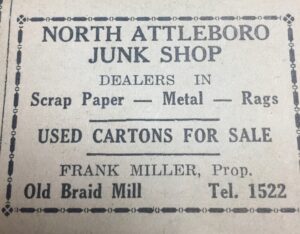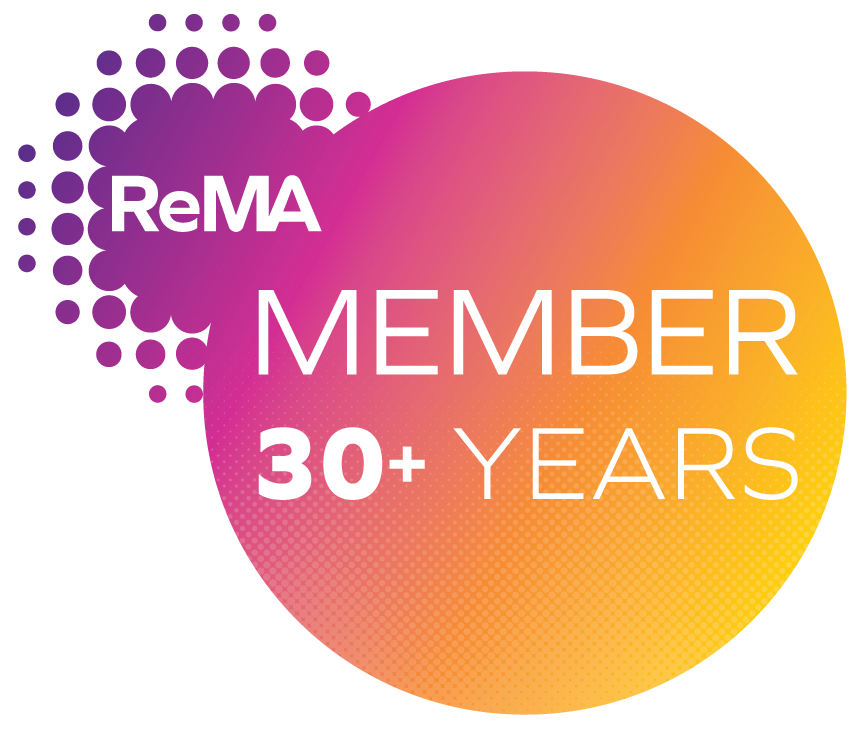2024 marks the 30th anniversary of our membership in the Institute of Scrap Recycling Industry, or ISRI. A lot of recycling progress has taken place during our 30-year involvement with this organization. (Earlier this year, ISRI rebranded as the Recycled Materials Association and is currently known as “ReMA,” but we’ll refer to it as ISRI here.)
We decided to join ISRI in 1994 to become more involved in the scrap recycling industry, network with other members, get involved in lobbying efforts, and gain access to ISRI’s annual convention. Our status as an ISRI member, and the relationships and industry insights we’ve gained through our membership, has proven to be beneficial to our company. It’s fair to say that today Miller Recycling is well established as a leader among Massachusetts recyclers, and within the larger recycling industry.
Our story begins long before our ISRI membership, however. As we celebrate this landmark anniversary, it seems like a fitting time to look back on how far we’ve come.
Miller Recycling: Where We Started, and How Recycling Services Have Changed

Our business first began in 1942. Recycling, although already in practice in the 1940s, was not a widely-used phrase to describe what we do. Back then the term “junk dealer” was used to describe our day-to-day operations: collecting paper, rags, metals, and secondhand items. (Plastic recycling wasn’t yet happening in the 1940s, of course; it would be a few decades before plastic became widely used by consumers and entered the waste stream.)
Recycling programs started to become popular in the late 1960s, when some forward-thinking communities began offering curbside collection of recyclables. Early on, material was separated by grade, so it was easy for a “recycler” to process. Over the next few decades, sorting technologies improved and “single stream” collection began. This allowed for plastics, metals, glass, and paper to be combined in one container, to be sorted and hopefully marketed downstream by the recycling facility.
The beginning of single stream collection challenged the still-new recycling industry in a number of ways. Recyclers had to upgrade their facilities. Sorting systems required multimillion-dollar investments in equipment. In order for recyclers to operate cost-effectively, these sorting systems needed to generate “clean” paper, plastics, aluminum, and steel that would be marketable to customers. Minimizing contamination became a constant challenge for both the industry and the end users.
Before and After National Sword
Many end consumers, including paper mills, could not tolerate the levels of contamination they were encountering in recycled materials. Gone was the clean, source-separated paper they had been relying on in the early days of paper recycling. Ultimately, many of these mills closed.
The contaminated recyclables that domestic manufacturers didn’t want found buyers overseas. For years, China was a major end market for shipments of American recycled material, even with high levels of contamination. China’s 2017 announcement of their “National Sword” campaign was an attempt to end the import of those low-quality shipments. They would no longer buy the recyclables that no one else wanted.
Without a market for contaminated materials, recyclers had to shift gears and figure out how to reduce contamination and generate more marketable materials. Adapting to this new way of doing things required facilities to make additional investments in sorting systems. New technological advancements, including robotics and AI, are helping us get more efficient at producing marketable materials.
Adjusting to the fallout from National Sword was just one of the bumpy periods the recycling industry has weathered over the past few decades. The pandemic, and subsequent supply chain issues, created unprecedented challenges for us, like they did across most industries. We have experienced economic recessions that severely impacted the demand for recyclables. We have encountered periods, thankfully brief, when there was no market for cardboard, mixed paper, and other paper grades. These have all been difficult times for our industry, but we have persevered.
What’s to come? Environmental awareness ensures that recycling will always exist, as the benefits far outweigh the downside of sending this material to a landfill. Technological advancements should continue to make it easier, faster, and cheaper for recyclers to process hard-to-manage materials like recycled plastic and electronic waste. Changing policies could also affect our industry with the new administration; we’ll see what happens.
We do know, from our experience, that history does repeat itself. So we always remain prepared for the next challenge. Here’s to the next 30 years.
Contact Miller Recycling for All Your Commercial Recycling Needs
Miller Recycling provides a full range of recycling services to Massachusetts organizations of all kinds. We can pick up your mixed scrap metal, plastic, and paper waste, along with providing solutions for disposing of hard-to-manage waste. We have the experience and expertise to make recycling services easy and cost-effective for your budget. Let’s talk specifics—contact us today!


